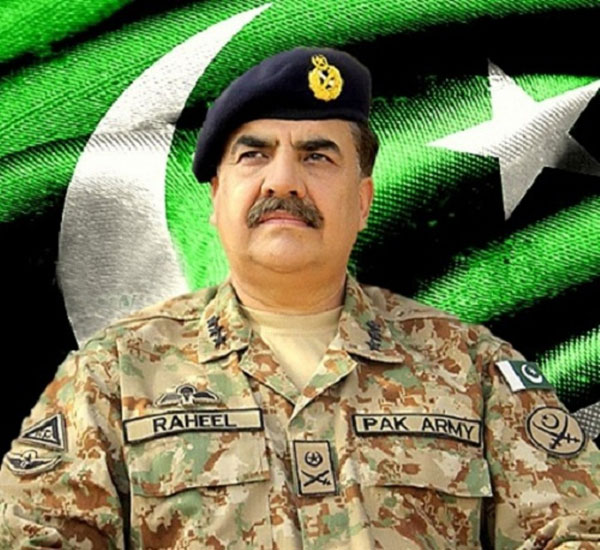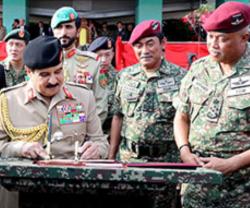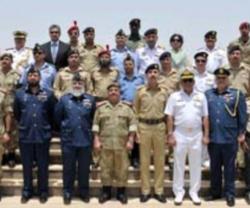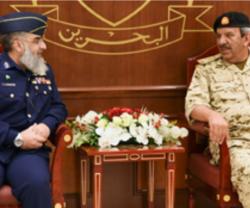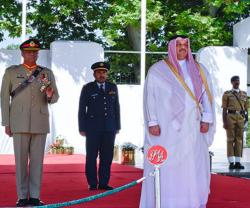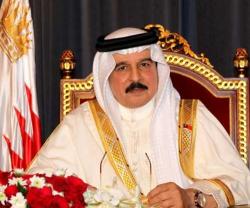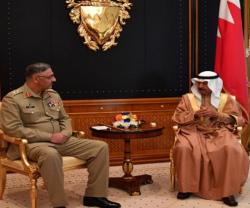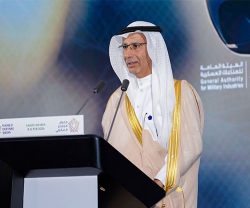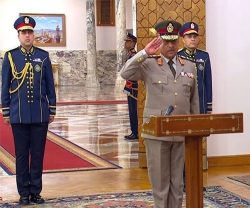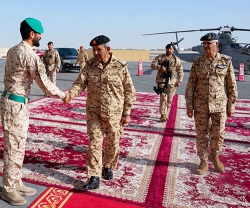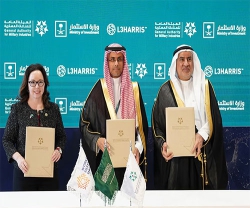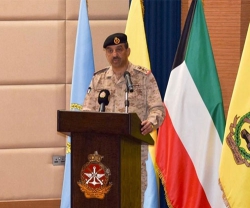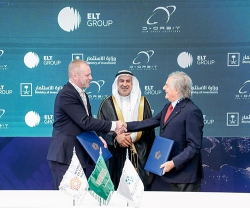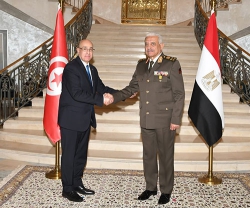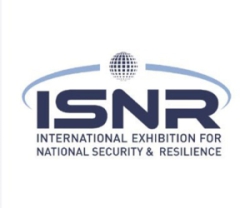Pakistan’s powerful military Chief accused India of being “blatantly” involved in attempts to destabilize the country, saying Delhi was hostile to an ambitious economic plan by Beijing and Islamabad for the region.
General Raheel Sharif (photo) spoke in the southwestern port of Gwadar, described by officials as the “heart” of the China-Pakistan Economic Corridor (CPEC).
The $46-billion initiative would give Beijing greater access to the Middle East, Africa and Europe through Pakistan, via a new highway to Gwadar port on the Arabian Sea.
It is part of China’s ambition to expand its trade and transport footprint in the region, while countering US and Indian influence.
India “has openly challenged this development initiative”, Sharif told a one-day seminar in Gwadar, in the southwestern province of Balochistan, earlier this week.
“I would like to make a special reference to Indian intelligence agency RAW (Research and Analysis Wing) that is blatantly involved in destabilizing Pakistan,” he added.
India has expressed wariness about CPEC in the past, though analysts have said that concerns would only emerge if there are “defense related matters”.
Last month, Pakistan protested to Delhi after arresting a man suspected of being an Indian spy in Balochistan, sparking a fresh diplomatic tiff between the nuclear-armed neighbors.
The army has repeatedly claimed that a years-long separatist insurgency in Balochistan is “terrorism” promoted by states hostile to Pakistan such as India.
Pakistani officials hope CPEC will transform Balochistan, Pakistan’s largest but least developed province.
Earlier Tuesday, Chinese officials told the seminar that they hope the port will be ready by the end of the year.
Meanwhile, U.S. and Indian officials agreed in principle to a deal that would allow the two countries’ Armed Forces to use each other’s bases for replenishment and repair, a sign of deepening defense ties as Washington and New Delhi grapple with a more-assertive China.
Concluding such a logistics-exchange pact would be a major step, after more than a decade of delays amid Indian concerns that it could be pulled into U.S. military operations or lose the strategic autonomy that has been a pillar of its policy of nonalignment in foreign affairs.
An agreement is to be signed “in the coming months,” India’s Defense Minister, Manohar Parrikar, pledged on Tuesday after talks with his visiting American counterpart, Ashton Carter.
India and the U.S. are strengthening defense ties as China increases its assertiveness in waterways throughout the Asia-Pacific region. The Obama administration also sees India as a large market for military goods, and Prime Minister Narendra Modi is looking to attract arms makers to create manufacturing jobs.
India and the U.S. plan to start dialogues on maritime security and submarine technology, Parrikar said on Tuesday. The two sides will also continue cooperation on a new aircraft carrier as part of efforts to integrate high-technology Indian companies into the global supply chain, he said.

